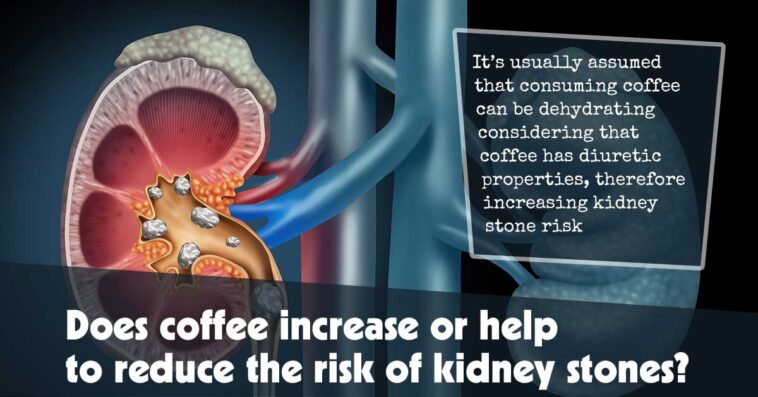Does Coffee Raise or Lower the Risk of Kidney Stones?
Coffee consumption is often thought of as dehydrating due to its diuretic properties and associated rise in kidney stone risk; however, studies suggest otherwise.
Kidney stones have become increasingly prevalent, with recent estimates placing their prevalence as high as 15% of the general population. Each year over 500,000 individuals seek emergency room help for kidney stone issues.
Kidney stones form from chemical substances found in urine. Once formed, these hard objects may remain within the kidney after formation or travel through the urinary tract into the urethra via the urinary tract system, potentially resulting in painful urine build-up that clogs up the urinary system and cause bladder back up.
Coffee consumption and kidney stone incidence has been consistently associated with each other in research studies.
Researchers conducted one research study using Mendelian randomization techniques to explore potential causal links between coffee consumption and kidney stone formation.
Data was drawn from 571,657 participants who had kidney stones from two studies; these participants included 176,613 FinnGen study participants and 395,044 U.K. Biobank study participants.
This study explored how genetics influence the relationship between coffee consumption and kidney stone risk. It utilized genetic variants associated with higher coffee intake. Results demonstrated that increasing from 1 daily cup to 1.5 daily cups reduced kidney stone risk by 40%.
Available data were utilized, and 12 single nucleotide polymorphisms, or SNPs, from genome-wide association studies that are associated with coffee intake were selected from genome-wide association studies that used food frequency questionnaires as the method of investigation.
Utilizing the inverse-variance weighted method, coffee consumption causal estimates were calculated: an increase of 50% consumption led to a 40% lower risk of stones for 1 daily cup added (which translated to roughly one and one-half cup more of coffee being consumed daily).
This study’s data and observational evidence should dispel any misperception that coffee dehydrates and is best avoided by individuals at high risk of kidney stones. Indeed, causal evidence demonstrates how coffee consumption reduces kidney stone risk.
Researchers suggest several theories as to why coffee may help lower kidney stone risk, with increased urine flow being one key protective factor against kidney stone formation. Caffeine consumption should always be combined with adequate water intake.
Coffee contains caffeine, which has been found to decrease calcium oxalate crystal adhesion to kidney cells, while citric acid found in coffee plants and urinary citrate is effective against kidney stone formation.
